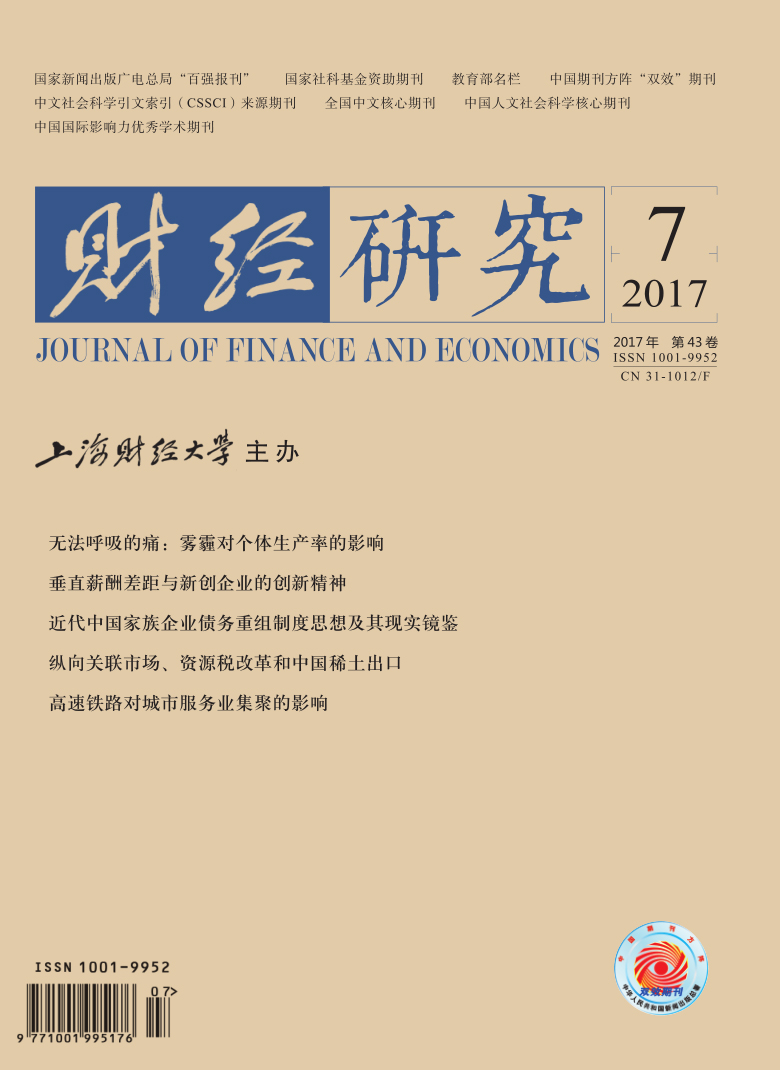方言作为地域文化的载体,是影响经济绩效的重要因素之一。现有研究虽然揭示了方言的经济后果,但对其产生影响的机制却语焉不详。文章基于中国综合社会调查数据库,将社会信任作为理解方言影响经济绩效的渠道,考察了方言对社会信任的影响。研究发现:(1)在陌生人之间,使用同一种方言有利于建立信任,即方言会影响社会信任的形成;(2)方言之所以能够影响社会信任,是因为它作为个体来源地的符号,能够增进彼此的身份认同感;(3)方言对社会信任的影响具有异质性,不仅会因个体受教育程度、城市发展水平和城市人口结构的差异而有所不同,也会因地区差别而有所差异。文章从社会信任的视角为方言影响经济绩效背后的机制提供了一个微观解释。
方言与社会信任
摘要
参考文献
1 戴亦一, 肖金利, 潘越. "乡音"能否降低公司代理成本?——基于方言视角的研究[J].经济研究, 2016, (12):147-160. DOI:10.3969/j.issn.1005-913X.2016.12.062
2 费孝通.乡土中国[M].北京:中华书局, 2013.
5 刘毓芸, 徐现祥, 肖泽凯.劳动力跨方言流动的倒U型模式[J].经济研究, 2015, (10):134-146. DOI:10.3969/j.issn.1002-5863.2015.10.052
7 许宝华, 宫田一郎.汉语方言大词典[M].北京:中华书局, 1999.
9 中国语言文字使用情况调查领导小组办公室.中国语言文字使用情况调查资料[M].北京:语文出版社, 2006.
10 Alesina A, La Ferrara E. Participation in heterogeneous communities[J]. Quarterly Journal of Economics, 2000, 115(3):847-904. DOI:10.1162/qjec.2000.115.issue-3
11 Alesina A, La Ferrara E. Who trusts others?[J]. Journal of Public Economics, 2002, 85(2):207-234. DOI:10.1016/S0047-2727(01)00084-6
12 Alesina A, La Ferrara E. Ethnic diversity and economic performance[J]. Journal of Economic Literature, 2005, 43(3):762-800. DOI:10.1257/002205105774431243
13 Barr A. Familiarity and trust:An experimental investigation[R]. Csae Working Paper No.1999-23.
14 Canning D, Fay M. The effects of transportation networks on economic growth[R].Working Paper, Department of Economics Columbia University, 1993.
15 Coleman J S. Foundations of social theory[M]. Cambridge:Harvard University Press, 1990.
16 Delhey J, Newton K. Who trusts?:The origins of social trust in seven societies[J]. European Societies, 2003, 5(2):93-137. DOI:10.1080/1461669032000072256
17 Fukuyama F. Trust:The social virtues and the creation of prosperity[M]. New York:Free Press, 1995.
18 Glaeser E L, Laibson D, Scheinkman J A, et al. What is social capital? The determinants of trust and trustworthiness[R]. NBER Working Paper No.7216, 1999.
19 Glaeser E L, Laibson D I, Scheinkman J A, et al. Measuring trust[J]. Quarterly Journal of Economics, 2000, 115(3):811-846. DOI:10.1162/qjec.2000.115.issue-3
20 Guiso L, Sapienza P, Zingales L. The role of social capital in financial development[J]. American Economic Review, 2004, 94(3):526-556. DOI:10.1257/0002828041464498
21 Igarashi T, Kashima Y, Kashima E S, et al. Culture, trust, and social networks[J]. Asian Journal of Social Psychology, 2008, 11(1):88-101. DOI:10.1111/ajsp.2008.11.issue-1
22 Knack S, Keefer P. Does social capital have an economic payoff? A cross-country investigation[J]. Quarterly Journal of Economics, 1997, 112(4):1251-1288. DOI:10.1162/003355300555475
23 Marschak J. Economics of language[J]. Systems Research & Behavioral Science, 1965, 10(2):135-140.
24 Mauro P. Corruption and growth[J]. Quarterly Journal of Economics, 1995, 110(3):681-712. DOI:10.2307/2946696
26 La Porta R, Shleifer A, Vishny R. The quality of government[J]. Journal of Law Economics & Organization, 1999, 15(1):222-279.
27 Putnam R, Leonardi R, Nonetti R. Making democracy work:Civic traditions in modern Italy[M].Princeton:Princeton University Press, 1993.
28 Putnam R. Bowling alone[M]. New York:Simon and Schuster, 2000.
29 Zak P, Knack S. Trust and growth[J]. Economic Journal, 2001, 111(470):295-321. DOI:10.1111/ecoj.2001.111.issue-470
引用本文
黄玖立, 刘畅. 方言与社会信任[J]. 财经研究, 2017, 43(7): 83–94.
导出参考文献,格式为:





 12403
12403  8396
8396

